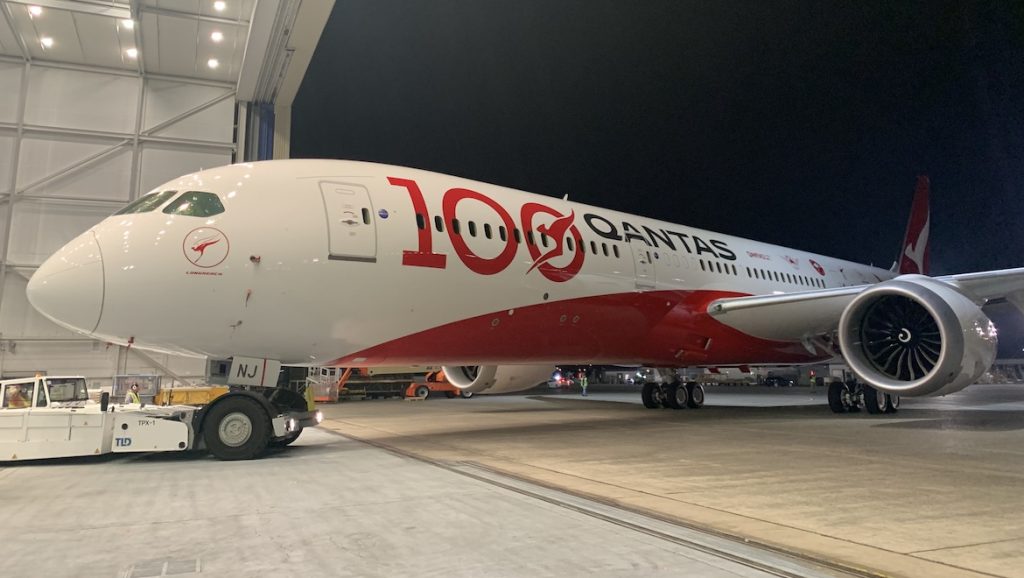Australia became the latest major country to significantly raise its international travel advice, as the world continues to go on lockdown.
Prime Minister Scott Morrison has now advised all citizens not to leave the country to travel anywhere internationally.
In an emotional address in the capital of Canberra, he said, “That is the first time that has ever happened in Australia’s history. The travel advice to every Australian is ‘Do not travel abroad. Do not go overseas.’
“That is a very clear instruction. For those who are thinking of going overseas in the school holidays, don’t. Don’t go overseas.”

Meanwhile, the European Union is attempting to synchronise its advice, after a number of member states imposed stringent travel conditions.
Now, all member states will introduce a ban that prohibits most foreigners from entering the bloc for 30 days.
The restrictions exempt long-term EU residents, diplomats, healthcare and transport workers, as well as citizens of the UK, Switzerland, Liechtenstein and Norway.
Previous restrictions now include:
Bans so far include:
- Canada will bar entry to almost all travellers who are not citizens or permanent residents in an escalated effort to stop the spread of the coronavirus pandemic. The ban will not apply to diplomats, aircrew and immediate family members of Canadian citizens.
-
China: Beijing has announced a 14-day mandatory quarantine on all international travellers arriving in the Chinese capital. Meanwhile, international business travellers will be required to stay at a select number of designated hotels in Beijing where they will be tested for the virus. They will not be allowed to leave until their test results have been returned.
- Germany: (Updated) Starting 16 March, Germany will close its borders with Austria, Denmark, France, Luxembourg and Switzerland, the country’s interior minister said on 15 March.
- Hong Kong: Passengers who have been in or through South Korea or China’s Hubei province in the past 14 days are not allowed to enter Hong Kong, and neither are Chinese nationals with a passport issued in Hubei. Hong Kong nationals and residents are exempt. Instead, they face a 14-day mandatory quarantine. Passengers arriving from or having been in China, Iran or Italy’s Emilia-Romagna, Lombardy and Veneto regions in the past 14 days are subject to the quarantine.
- India is now suspending all tourist visas and enforcing a 14-day quarantine on all travelers, including returning Indian nationals, arriving from or having visited China, France, Germany, Iran, Italy, South Korea and Spain.
- Italy: Passengers arriving as tourists are not allowed to enter via airports in the following areas: Alessandria, Asti, Lombardy, Modena, Novara, Padova, Parma, Pesaro and Urbino, Piacenza, Reggio Emilia, Rimini, Treviso-Venice, Verbano-Cusio-Ossola and Vercelli.
- Japan is banning entry for passengers who have been in affected regions of China, South Korea or Italy within the last 14 days. Japanese nationals are exempt, as are their spouses and children, if the relations are verified.
- New Zealand Prime Minister Jacinda Ardern announced on 14 March that all travellers entering the country will be required to “self-isolate” for 14 days. The new measures went into effect at midnight on 15 March local time and apply to nearly every traveller, regardless of nationality, including New Zealand citizens and residents.
- Russia: Nationals of China, Hong Kong, Macau, Iran and Italy are not allowed in Russia, but exemptions are made for airline crew and foreign nationals resident in Russia.
- Saudi Arabia: Umrah pilgrimages to Mecca and Medina are under a temporary ban, unless the pilgrims are nationals of Bahrain, Kuwait, Oman, Qatar or the United Arab Emirates who have obtained permits.
- Spain: A state of emergency has already been declared in Spain and strict lockdown policies including restrictions on travel in and out of the country are expected. On Saturday, at least five Spain-bound airplanes belonging to low-cost carrier Jet2 turned back to the UK mid-air. The company said it was acting in response to measures introduced by the Spanish government.
- Singapore: From midnight on Monday local time, all travellers entering Singapore with recent travel history to ASEAN (Association of Southeast Asian Nations) countries, Japan, Switzerland or the UK within the last 14 days will be issued with a 14-day “Stay-Home Notice” and will have to provide proof of the place where they will stay.
- Turkey: Turkey has halted travel to and from nine European countries: Germany, Spain, France, Austria, Norway, Denmark, Sweden, Belgium and the Netherlands. Nationals of those countries are not allowed to enter the country. (Updated) On March 16, the Health Minister Fahrettin Koca said in a news briefing the country would also suspend flights to and from the UK, Switzerland, Saudi Arabia, Egypt, Ireland and the United Arab Emirates. The flights will be stopped as of 8am local time on 17 March.
- UK: (Updated) Officials in the UK are monitoring direct flights into the country from certain areas, according to the US embassy, and informing incoming passengers about how to report any symptoms.




